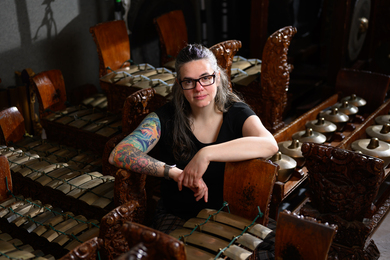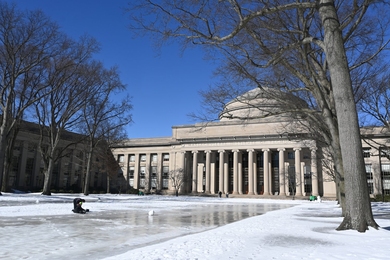Graduate students will have the chance to make their voices heard five days before the general election.
On Oct. 28, each of the more than 6,000 graduate students at MIT will receive an e-mail message from Professor Alice Gast, associate provost and vice president for research, inviting them to participate in an online survey.
The students will be surveyed on a variety of topics including financial support, educational programs and their opinions regarding the Institute. Graduate students have until Thanksgiving break in late November to fill out the questionnaire.
Barun Singh, president of the Graduate Student Council (GSC), said one of the main goals is to address the advisor-advisee relationship.
"We are looking at how to improve that relationship," said Singh. The results of the survey will help give quantifiable results that can be used to implement change if needed, he said. In the meantime, focus groups are already forming to deal with the problems the GSC has already identified.
"We are pretty hopeful that the survey and focus groups will give us a real, definitive approach," said Singh.
Singh hopes questions like: "If you were to start your graduate/professional career again, would you select this same university?" and "Would you recommend this university?" will get to the heart of student satisfaction levels.
This is the third survey of its kind; graduate students are asked from time to time to gauge where improvements can be made. A similar questionnaire sponsored by the GSC a few years ago attracted 44 percent participation. By working together with the school, Singh said the GSC hopes for even more turnout from this survey.
"We'd like to see 50 percent participation," said Singh. "That would give us the kind of results we need."
The survey will act as a window into the lives of graduate students. Though the data is not anonymous, it is confidential, said Lydia Snover, assistant to the provost for institutional research. When compiled, the data is stripped of all identifiers. "Graduate student satisfaction and opinions on all aspects of community life are very important to MIT," said Snover.
"If we can make it really clear that the results of this survey will be used to drive change, we can get a lot of people to answer," Singh said.
A version of this article appeared in MIT Tech Talk on October 27, 2004 (download PDF).





